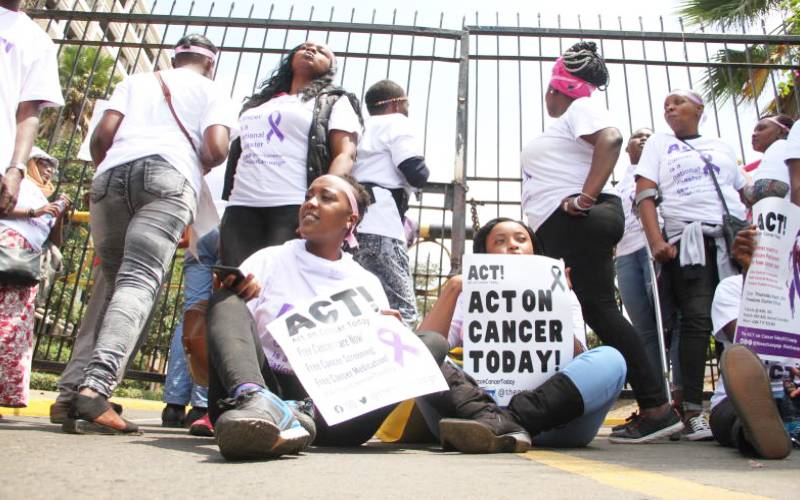×
The Standard e-Paper
Join Thousands Daily

National Cancer ambassadors camp outside Afya House during a peaceful demonstration on August 1, 2019, to educate the public on cancer. [Edward Kiplimo,Standard]
Non-communicable diseases (NCDs), including cancer are chronic. They are caused by a combination of genetic, physiological, environmental and behavioural factors.